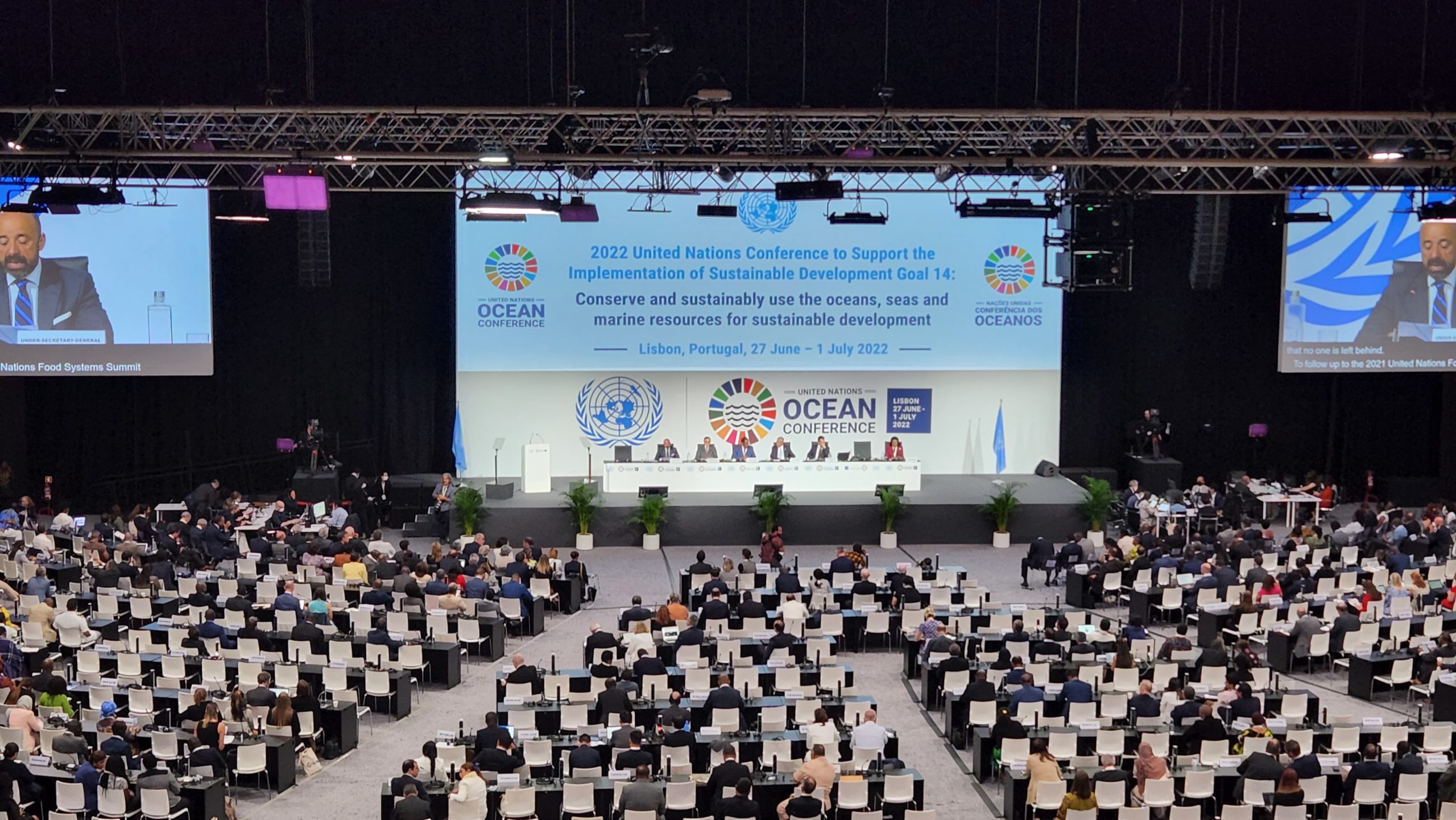Many UN member states participating in the UN Ocean Conference still have a long way to go towards recognizing Indigenous Peoples and local communities as part of the solutions to restoring our aquatic ecosystems
First published on 09/01/2022, and last updated on 06/18/2025
By Luciano Hiriart-Bertrand, CEO of Costa Humboldt ( ICCA Consortium Member )
The 2022 UN Ocean Conference, jointly hosted by the governments of Portugal and Kenya, took place in Lisbon, Portugal from 27 June to 1 July 2022. The conference aimed to support the implementation of Sustainable Development Goal 14: “Conserve and sustainably use the oceans, seas, and marine resources” by facilitating discussions about the ecological restoration of our coastal and marine ecosystems.
The states must take responsibility for the negative impacts we are suffering on a global scale due to pollution, destructive fishing, habitat destruction, biodiversity loss, and climate crisis. But despite the consensus about the urgency of addressing the threats, we still see superficial attempts to act on the radical changes we need. We still have much time for action. But to ensure the recovery of our oceans for the generations to come, we need effective initiatives that deliver benefits in the short term.
A wide range of actions has been proposed at a global and local level, including creating more marine protected areas, promoting the blue economy, and investing in research to explore more and better nature-based solutions. However, we seem to forget that these kinds of initiatives have systematically failed, either due to weak commitment from states or simply because of the priorities of those at a disadvantage who see their extractive economies negatively altered by these changes.
The lack of legitimacy of ocean conservation actions at the local level remains one of the most critical and challenging issues. We had a clear example during the week of the UN Ocean Conference in Lisbon seen with the low participation of key ocean stakeholders, such as representatives of Indigenous Peoples, local communities, and artisanal fishers.
During the meetings at the main venue of the conference, there was an absence of the voices of the sea, the local communities, and Indigenous Peoples who play a crucial role in protecting, preserving, and conserving the spaces and resources provided by oceans. The voices of the people of the sea were mostly heard in the side events organized by fishers organizations and non-government organizations.
These voices are the ones that have most strongly called for action but continue to be silenced by denier states focusing their potential solutions only on the hopes of market adaptability, blue economy, and research.
Fully protecting 30% of our oceans by 2030 is a desirable target for many states and environmental NGOs. However, we continue to ignore the local communities, Indigenous Peoples, and artisanal fishing communities who depend on the services provided by the oceans.
One of the most prominent solutions to achieving this 30 by 30 target is the creation of more marine protected areas. These areas offer solutions for restoring ecosystems, improving fisheries, mitigating the adverse effects associated with climate change, and providing new opportunities for local economies. However, there are many disagreements about how effectively they meet the expected outcomes, especially considering that a series of categories fall under this banner, some of which grant broad powers for controversial conservation activities.
A special case is Chile, where the state, in the past, has become the standard-bearer of the region; portraying itself as the country of marine protected areas. Currently, announcements about the creation of more multiple-use marine protected areas (MU-MPA) are frequent, offering these areas high degrees of flexibility in their functioning. On the global scale, these types of conservation areas are presented as major announcements, but they are nothing more than empty statements. It is through these categories that various industries are allowed to operate, undermining the concept of conservation.
We must not forget to highlight how the different states that participate in these global events cast aside those voices that wish to be part of the solution. In such conferences, we see national delegations that are not in tune with reality, that focus on diplomatic validation from their peers, and create solutions with no scope and little benefit to those communities that depend directly on healthy oceans.
Chile offers alternatives for safeguarding its natural and cultural marine heritage through comprehensive and multicultural processes with a strong focus on local governance. Those alternatives are part of the solution because they are processes that ensure the participation of the voices of the sea. From Chile, we call to recognize alternative models of conservation and not to conform only to the western model of conservation with weak legitimacy.
In Chile, Marine and Coastal Areas for Indigenous People (MCAIP) offer direct and effective solutions to the crisis that humanity is facing in the ocean. They invite us to approach those social and ecological representation systems with more strength and to broaden conservation approaches to include integrative forms of customary uses-based conservation and restoration of coastal-marine ecosystems.
We are inhabitants of one of the richest, most resilient, and fragile coastlines on the planet, dominated by highly productive marine currents, fjord systems composed of the most extensive interconnected network of macroalgae forests, and some of the most important freshwater reservoirs on the planet after Antarctica and Greenland, respectively.
The MCAIPs are part of the solution, and their local voices have demonstrated this through concrete actions. States must recognize the direct contributions of local and Indigenous communities to ocean conservation. Otherwise, we will continue witnessing empty statements that provide no guarantees to move ahead with conserving our oceans.
